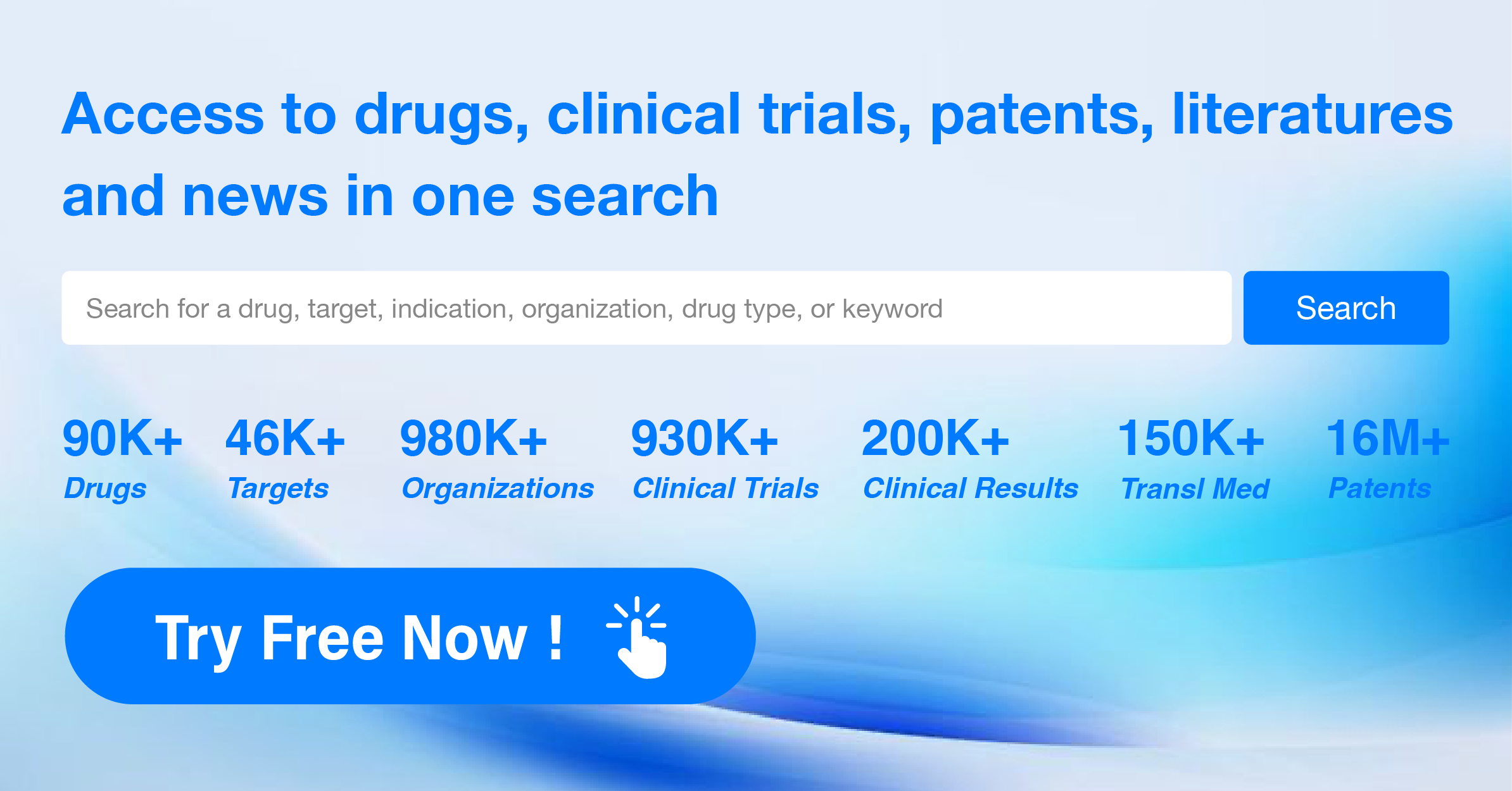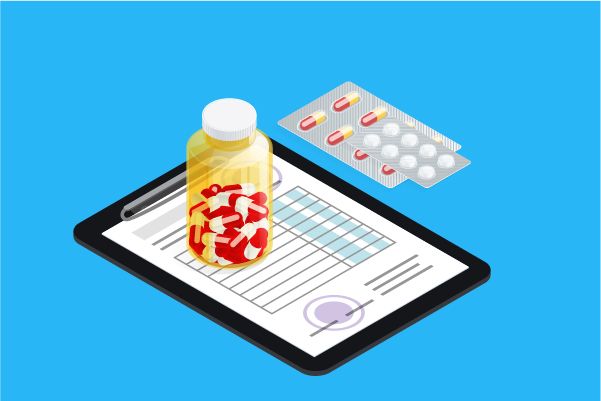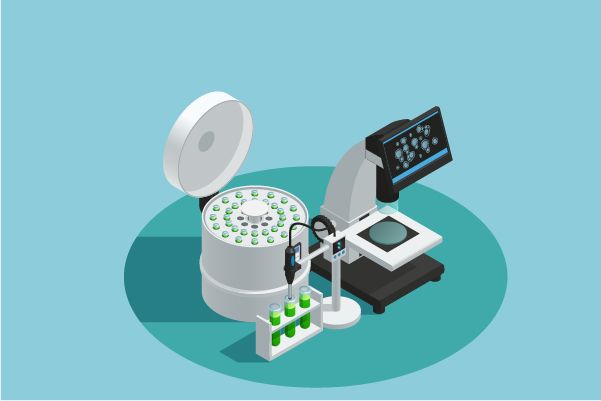Pharma Frontiers: Daily Digest of Global Pharmaceutical News – Jul 25
1.FDA Accepts Mesoblast's "Off-The-Shelf" Cell Therapy Ryoncil for Market Application
On July 24, Mesoblast announced that the US FDA has accepted the resubmission of its Biologics License Application (BLA) for the cell therapy Ryoncil (remestemcel-L) for the treatment of pediatric patients with steroid-resistant acute graft-versus-host disease (SR-aGVHD). The Prescription Drug User Fee Act (PDUFA) goal date is set for January 7, 2025. According to the press release, if approved, Ryoncil will become the first allogeneic "off-the-shelf" cell therapy in the US, and the first cell therapy specifically for children under 18 years of age with SR-aGVHD. Approximately 50% of patients undergoing allogeneic bone marrow transplantation (BMT) develop acute GVHD. Every year, over 30,000 patients worldwide undergo allogeneic BMT, and this number is increasing. Among the most severe acute GVHD patients, despite receiving the best available therapies, the mortality rate remains as high as 90%. Currently, there are no therapies approved by the US FDA for treating SR-aGVHD in patients under 12 years old. Previously disclosed results from a Phase 3 trial showed a Day 28 Objective Response Rate (ORR) of 69% for Ryoncil, a statistically significant increase compared to the 45% historical control rate. The mortality rate among patients who received at least one infusion and were followed up for 100 days was 22%, compared to a 70% mortality rate at day 100 for those whose initial steroid treatments were ineffective. Ryoncil is a mesenchymal stem cell therapy that modulates T-cell mediated inflammatory responses by inhibiting T-cell proliferation and downregulating pro-inflammatory cytokines and interferons. Previously, its BLA was granted priority review designation by the FDA. Currently, Ryoncil is being developed for the treatment of other diseases, including a Phase 3 clinical trial testing its efficacy in treating severe COVID-19 patients with Acute Respiratory Distress Syndrome (ARDS).
2.Submission for Market Approval of a New Oral Alzheimer's Drug, Octahydroaminoacridine Succinate Tablets
On July 24th, Tonghua Golden-Horse announced that their market application for Octahydroaminoacridine Succinate Tablets for treating Alzheimer’s disease was accepted by the National Medical Products Administration (NMPA). Octahydroaminoacridine Succinate Tablets are a small molecule acetylcholinesterase inhibitor developed by Tonghua Golden-Horse. They can inhibit both acetylcholinesterase and butyrylcholinesterase and are primarily used for treating mild to moderate Alzheimer’s disease. In vitro tests have shown that Octahydroaminoacridine Succinate Tablets have several times the inhibitory capacity on both acetyl and butyryl cholinesterase compared to standard first-line medications, thus leading to better clinical treatment effects. Additionally, Phase I and II clinical trials have validated its clinical efficacy. Furthermore, the drug’s safety profile is comparatively more reliable and safer. In September 2023, Tonghua Golden-Horse announced the successful completion of the Phase III study of Octahydroaminoacridine Succinate Tablets in treating mild to moderate Alzheimer's disease. This study commenced in January 2017 and completed patient enrollment in August 2021. Results indicated that the Octahydroaminoacridine Succinate Tablets significantly improved the cognitive section of the Alzheimer’s Disease Assessment Scale (ADAS-cog), which is clinically significant. Regarding safety, the incidence of adverse events in the Octahydroaminoacridine Succinate group was lower than the two control groups (placebo and donepezil hydrochloride tablets), with statistically significant results compared to the placebo group (P<0.001).
3.ViiV Healthcare Announces Phase 4 Clinical Results for Dual Therapy Dovato
On July 24th, Vii V Healthcare announced positive results from the PASO DOBLE phase 4 clinical trial. Analysis revealed that the study met its primary endpoint, demonstrating non-inferiority in maintaining viral suppression compared to a three-drug active control regimen with patients switching to the dual antiretroviral regimen Dovato (dolutegravir/lamivudine, DTG/3TC) for HIV. Notably, during the 48-week trial period, weight gain in patients treated with Dovato was significantly lower than in the active control group. Treatment-related weight gain is a common phenomenon among HIV patients, making these trial results highly significant for the patient population. According to statistics, as of December 2023, approximately 30.7 million HIV patients are receiving antiretroviral therapy. PASO DOBLE is an open-label, randomized, multicenter phase 4 clinical trial designed to compare the effects of maintaining viral suppression between Dovato and Biktarvy (bictegravir/emtricitabine/tenofovir alafenamide fumarate, BIC/FTC/TAF) in patients with HIV-1. A total of 553 viral suppression HIV patients were switched to either Dovato (n=277) or the active control medication (n=276). Participants included those who were receiving multi-tablet regimens, required pharmacokinetic boosters, or whose treatment could be optimized due to potential drug toxicity. Analysis indicated that the study achieved its primary endpoint, with the proportion of patients in the Dovato group with viral RNA ≥50 copies/mL being non-inferior to the active control over the 48-week trial period. In the active control group, one participant experienced confirmed virological failure (initial HIV-1 RNA ≥50 copies/mL followed by a subsequent HIV-1 RNA ≥200 copies/mL) within 48 weeks, while no such cases were reported in the Dovatogroup.
4.Merck Announces Successful Phase IIb/III Study of Anti-RSV Monoclonal Antibody Clesrovimab, Plans to Seek Approval
On July 23rd, Merck announced positive results from its Phase IIb/III MK-1654-004 study of Clesrovimab (MK-1654) for the prevention of Respiratory Syncytial Virus (RSV) infection. This randomized, double-blind, placebo-controlled clinical trial evaluated the efficacy and safety of the anti-RSV monoclonal antibody Clesrovimab (single-dose, intramuscular injection) in protecting infants (healthy preterm and full-term) from RSV infection. The results indicated that the study met its primary safety and efficacy endpoints, including a reduction in the incidence of medically attended lower respiratory tract infections (MALRI) caused by RSV within 150 days. Merck stated that detailed data will be presented at an upcoming medical conference and plans to submit these findings to regulatory authorities.
RSV is a seasonal infectious virus that can lead to severe respiratory illnesses such as bronchiolitis and pneumonia. Infants and the elderly are particularly susceptible to RSV. RSV infections are also a leading cause of hospitalization in healthy infants under one year of age. Globally, about 101,000 children under five years old die from RSV infections each year. Currently, Sanofi's Nirsevimab (commercial name: Beyfortuctus) is the only available prophylactic antibody medication for RSV. According to Sanofi's financial reports, Nirsevimab generated sales of $586 million in 2023.
5.The application for Phase 3 clinical trials of Chidamide triple therapy by Chipscreen Biosciences has been approved by the NMPA
On July 23, Chipscreen Biosciences announced that its Class 1 new anti-cancer drug Chidamide, in combination with Sintilimab and Bevacizumab for the treatment of colorectal cancer, received approval from the National Medical Products Administration (NMPA) of China for a Phase 3 clinical trial. This trial is a randomized, open-label, controlled, multicenter clinical study designed to evaluate the efficacy and safety of Chidamide in combination with Sintilimab and Bevacizumab in treating patients with advanced microsatellite-stable or mismatch repair-proficient (MSS/pMMR) colorectal cancer who have failed ≥2 lines of standard treatment. Colorectal cancer is one of the most common cancers in China with a high incidence and mortality rate. Phase 2 clinical studies have shown that for patients with microsatellite-stable/mismatch repair-proficient (MSS/pMMR) metastatic colorectal cancer (mCRC), the triple-drug regimen of Chidamide + Sintilimab + Bevacizumab as third-line or beyond treatment achieved an 18-week PFS rate of 64.0%, an ORR of 44.0%, and a median PFS of 7.3 months. Last month (June 8), Chidamide was officially included as a "Breakthrough Therapy" by the CDE of the NMPA, with a proposed indication for Chidamide combined with Sintilimab and Bevacizumab for the treatment of advanced microsatellite-stable or mismatch repair-proficient colorectal cancer following ≥2 lines of standard treatment failure. Chidamide is an orally administered, subtype-selective histone deacetylase (HDAC) inhibitor that can reactivate the tumor-suppressive immune microenvironment and can be used alone or in combination with other drugs to treat significant diseases such as malignant tumors. Chidamide has been approved in China for three indications: peripheral T-cell lymphoma, breast cancer, and diffuse large B-cell lymphoma.
6.Cytoki Pharma Announces Positive Results for New Weight Loss Target IL-22
On July 23rd, Cytoki Pharma announced that their IL-22 analog, CK-0045, achieved positive outcomes in Phase I trials involving healthy volunteers and obese patients. The findings demonstrate significant effects of CK-0045 on key metabolic indicators such as body weight, cholesterol, blood glucose levels, and insulin sensitivity. CK-0045 is a long-acting analog optimized from the pharmacological properties of endogenous IL-22. Endogenous IL-22 is a non-conventional, non-immunomodulatory cytokine that selectively targets epithelial cells and participates in metabolic processes within the human body. Therapies targeting IL-22 hold potential for treating widespread metabolic diseases as well as diseases characterized by epithelial damage, such as inflammatory bowel disease.
The Phase I study was randomized, double-blind, placebo-controlled, and involved single and multiple escalating doses to evaluate the safety, tolerability, and pharmacokinetics of CK-0045 in healthy volunteers and obese patients. Healthy subjects received one dose of CK-0045 via subcutaneous injection, while obese patients received six doses of CK-0045 (subcutaneously, once per week). The results indicated that hepatic and intestinal biomarkers confirmed IL-22 as the effective target; pharmacokinetic data supported the feasibility of weekly subcutaneous administration; efficacy data showed that CK-0045 effectively reduced body weight, levels of low-density lipoprotein cholesterol, and blood insulin levels while improving insulin resistance, particularly in subjects with poor insulin sensitivity.
The multiple-dose escalating study concluded that CK-0045 has good safety and tolerability profiles. The most common side effect was mild skin reactions. Moreover, no substantial gastrointestinal effects were observed from the use of CK-0045.
7.Hansoh Pharma International's Class 1 Innovative Drug Approved for Clinical Trials for Manic Depression
On July 23, the website of the Center for Drug Evaluation (CDE) of China's National Medical Products Administration publicly announced that two clinical applications for the Class 1 new drug HS-10380, filed by Hansoh Pharmaceutical, have been approved for the treatment of manic episodes in Bipolar I Disorder. Manic episodes in Bipolar I Disorder represent one of the manifestations of bipolar disorder, also known as manic depression. HS-10380 is a multi-target agonist and is currently also being researched in clinical studies for schizophrenia. It is one of Hansoh Pharma's independently developed projects in the field of neurological disorders. Public information reveals that HS-10380 acts as a multi-target agonist for D2, D3 receptors, and as a partial agonist for the 5-HT1A receptors, with significant antagonistic activity at 5-HT2A receptors, potentially improving symptoms in patients with psychiatric disorders. Preclinical studies have shown that HS-10380's competitive binding to 5-HT1A and 5-HT2A receptors is superior to that of similar control medications, exhibiting high plasma exposure and effective pharmacodynamics in animal models. Bipolar disorder, formerly known as manic depression, is a common mental health disorder that can cause extreme emotional swings, including manic or hypomanic episodes characterized by elevated moods, or depressive episodes characterized by low moods. These emotional fluctuations can affect the patient's sleep, energy, activity, judgment, behavior, and clarity of thought. In some cases, manic episodes may lead to delusions or a break from reality. Bipolar disorder and its related conditions come in various forms, among which Bipolar I Disorder involves at least one manic episode, with preceding or following mild manic or major depressive episodes. The main clinical treatment options for this condition include mood-stabilizing drugs, antipsychotics, certain antidepressants, psychotherapy, education, and support.
8.Triastek entered into the first-ever technology platform collaboration in the history of Chinese formulation with BioNTech
On July 24, Triastek Pharmaceuticals announced that it had reached a research collaboration and platform technology licensing agreement potentially exceeding $1.2 billion with BioNTech. According to the agreement, the two companies will develop oral RNA therapies based on 3D printing technology to meet unmet medical needs. Triastek is a technology company focusing on 3D printing technology. Its "Melt Extrusion Deposition" (MED) technology is widely used in the research and manufacturing of solid dosage forms. This technology works by directly mixing and melting powdered raw materials into a flowable semi-solid, which is then extruded with high precision and printed layer by layer into a pre-designed three-dimensional structure. This process allows for controlled release of the drug within the body. Triastech will contribute its expertise in innovative oral tablet design for this collaboration, which is realized through 3D printing technology. The design aims to optimize the delivery of RNA drugs in the gastrointestinal mucosa, minimize the degradation of the drugs in the gastrointestinal tract, and deliver the RNA drugs to the most absorbent parts of the gastrointestinal tract. Triastek has the capability to create tablets with unique external and internal geometrical shapes, including multi-layer and multi-compartment designs, aimed at optimizing the delivery of novel RNA drugs. Under the terms of the agreement, Triastek will receive an upfront payment of $10 million and is eligible to receive milestone payments that may exceed $1.2 billion in total for development, regulatory, and commercial milestones.
How to obtain the latest research advancements in the field of biopharmaceuticals?
In the Synapse database, you can keep abreast of the latest research and development advances in drugs, targets, indications, organizations, etc., anywhere and anytime, on a daily or weekly basis. Click on the image below to embark on a brand new journey of drug discovery!




